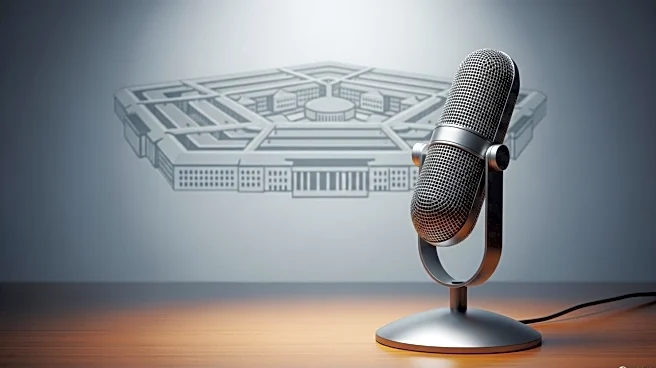What is the story about?
What's Happening?
The Pentagon, under the Trump administration, has implemented stricter media access rules, requiring journalists to obtain approval before reporting even unclassified information. This policy, outlined in a 17-page memo, mandates credentialed journalists to sign a pledge refraining from unauthorized reporting. The move has been met with criticism from press freedom advocates, who view it as a threat to independent journalism and transparency. The restrictions follow incidents of leaked information, including plans for military briefings involving high-profile figures like Elon Musk.
Why It's Important?
The new restrictions could hinder the ability of journalists to report on military affairs, affecting public access to information and government accountability. This policy may contribute to a broader trend of government control over media narratives, potentially impacting democratic norms and the public's right to know. The move reflects the administration's approach to managing information, prioritizing security over transparency, which could have implications for press freedom and civil liberties.
What's Next?
Press freedom organizations are likely to challenge the policy, advocating for the protection of journalistic rights and the First Amendment. The administration may face increased scrutiny and criticism from both domestic and international observers, affecting its reputation and credibility. The policy could influence future interactions between the press and government officials, shaping the landscape of American journalism.
Beyond the Headlines
The restrictions raise ethical questions about the balance between national security and press freedom, highlighting the potential risks of government overreach. The policy may set a precedent for future administrations, impacting the long-term dynamics of media-government relations and the role of journalism in holding power accountable.















